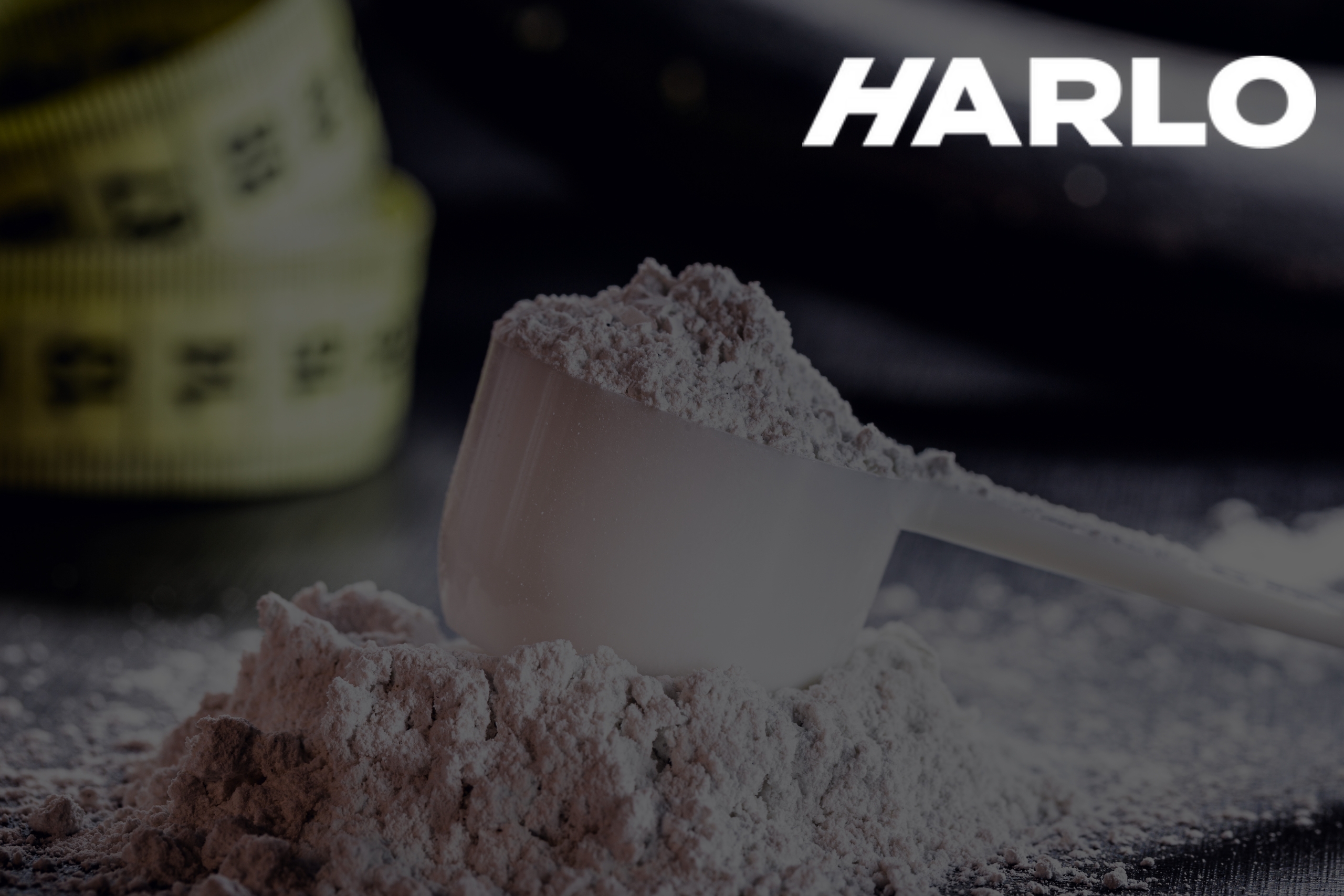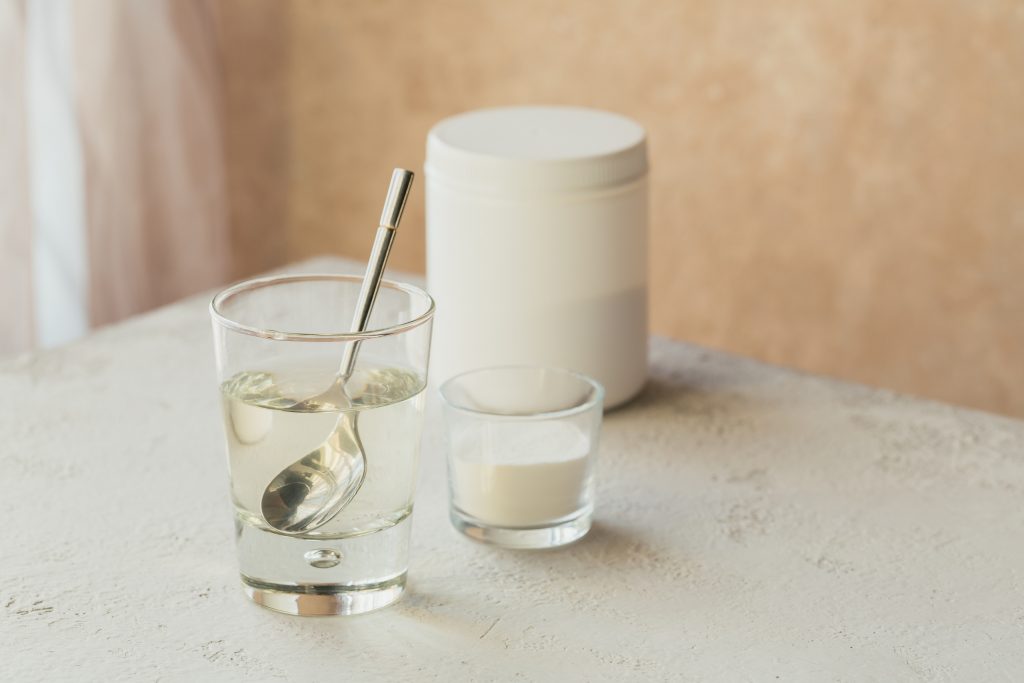
Our bodies produce a lot of collagen. It is a key part of many organs and processes. About 25% to 35% of all the protein in our bodies is this type of protein, and our connective tissues have a lot of it. Collagen is known for supporting structures and is an important part of keeping our skin, tendons, ligaments, bones, and even blood vessels strong, flexible, and whole.
It’s impossible to say enough about how important collagen is to our bodies. Our bodies naturally make less collagen as we get older. This causes wrinkles, droopy skin, stiff joints, and bones that aren’t as strong. Furthermore, collagen provides a strong foundation for healing wounds, promoting tissue growth, and assisting in the regeneration of damaged tissues.
Collagen acts as a glue that holds our bodies together, making it vital for maintaining overall health and well-being. Because of this, it has gotten a lot of attention in the beauty, health, and skin care industries. Collagen has become a hot topic among experts, health fans, and regular people because of its amazing qualities and possible health benefits.
The Role of Collagen in Connective Tissues
Collagen is one of the body’s most common proteins, and it is very important for keeping connecting tissues’ shape and stability. Many parts of the body, like the skin, bones, muscles, and blood vessels, depend on connective tissues for support, strength, and flexibility.
Glycine, proline, and hydroxyproline are some of the amino acids that are found in collagen. They are very important for its structure and function. Collagen is strong and stable because these amino acids are arranged in a triple helix shape. Collagen is made up of precisely arranged amino acids that make it resistant to stretching and breaking. This makes connective tissues strong.
Collagen is an important building block for connective tissues because it helps make a network of fibers that give tissues their shape and power. These fibers help hold cells together and give other chemicals and proteins a place to rest. Besides moving food, waste, and communication molecules around the body, this network also lets them get there.
In addition, collagen is very important for treating wounds. Injured tissues get collagen deposited at the wound site to help the tissue heal. A structure for new cells to move and multiply is provided by collagen, which helps new connective tissue grow to replace the damaged area.
Collagen Production in the Body
The body’s collagen production is a complicated process with many steps. Fibroblasts are cells that are found in skin, bones, tendons, and cartilage. They are responsible for the production of collagen. These cells are in charge of making collagen proteins and releasing them into the body.
A number of things control how much collagen is made. Having enough amino acids, which are what collagen is made of, is one of the most important things. Building blocks of collagen are amino acids like glycine, proline, and hydroxyproline. In addition, vitamin C is very important for making collagen because it is needed for the enzyme processes that make collagen.
Hormonal balance, age, and living choices are some other things that can affect collagen creation. For example, estrogen makes the body make more collagen, which is why women usually have more collagen than men. Collagen production typically goes down with age, which makes lines and droopy skin show up. Lifestyle choices like smoking, spending too much time in the sun, and not eating well can also hurt collagen creation.
The body has different kinds of collagen, and each one does a different job. Type I collagen is the most common type. It helps the skin, bones, muscles, and fibrous parts stay strong. Type II collagen is found in cartilage and is very important for its ability to bend and absorb shock. Body parts like blood tubes and organs contain type III collagen, which helps them stay together.
The Impact of Collagen on Skin Health
Collagen is very important for keeping the skin healthy and full of flexibility. In older people, the body makes less collagen, which makes lines and droopy skin appearance. Collagen gives the skin its supporting structure, which makes it hard and strong.
One of the best things about collagen for good skin is that it helps keep oxygen in the skin. Collagen helps draw in and hold on to water molecules, which keeps the skin moist and stops it from drying out. This water is very important for keeping your skin looking young and healthy.
Collagen also helps the body make new skin cells, which fix skin that is broken. In addition to helping cuts, scars, and stretch marks heal, it speeds up the growth of new skin cells. Collagen can also make acne and other skin problems look better because it helps control sebum production and clear out pores.
For another thing, collagen is good for blood vessels. It makes the walls of blood vessels stronger and more elastic and flexible. In turn, this improves blood flow, which brings oxygen and nutrients to the skin cells. A healthy skin is also helped by better blood flow, which helps the body get rid of toxins and waste.
Using Collagen Supplements for Skin Health
In recent years, collagen pills have become more and more common as a way to improve the health and look of the face. If you take these pills, when should you do it? How will they help your skin? Are there any possible side effects?
As for when to take them, collagen supplements can be added to your daily routine whenever you want. A lot of people choose to take them with their breakfast or dinner to make sure they don’t miss a dose. Make sure to carefully follow the manufacturer’s usage instructions, or talk to a medical professional for more specialized help.
One of the best things about collagen pills is that they can make your face look better. Collagen is a protein that gives skin its shape and flexibility. However, as we get older, our bodies make less collagen, which makes our skin lose its structure and sag. You can boost your body’s collagen levels by taking collagen supplements. This can help your skin stay flexible and fight the signs of aging.
Supplements with collagen are usually safe to take, but there are some side effects you should know about. Some people may have mild stomach problems, like bloating or not being able to go to the bathroom regularly. There is also a small but possible chance of allergic responses. Also, collagen supplements come from different places, like sea or animal sources, so people who have to follow certain diets or are allergic to certain animals should be very careful about which ones they choose.
Other Health Benefits of Collagen
Collagen is known to be good for your joints, your flexibility, your bone mass and strength, but it’s also good for you in many other ways.
Collagen is a very important protein for keeping skin flexible and lowering the look of lines. Our bodies naturally make less collagen as we get older, which makes our skin shrink and get fine lines. By adding collagen to our diet, we can make our skin more flexible and strong, which can help it look younger and healthier.
Collagen has also been shown to improve heart health by strengthening the walls of arteries and making blood move better. It helps keep the blood vessels healthy, which lowers the chance of heart illnesses like atherosclerosis and high blood pressure.
Collagen also helps gut health by making the walls of the digestive system stronger. It helps digestive cells heal and lowers inflammation, which means it can help with conditions like irritable bowel syndrome and leaky gut syndrome.
Collagen has also been shown to improve the health of hair and nails. It makes the hair cells stronger, which stops hair loss and makes hair thicker and glossier. Collagen also makes nails stronger and helps them grow, so they don’t become weak and break easily.
How to Increase Collagen Production Naturally
Collagen is an important protein that gives our skin, joints, and bones shape and support. Collagen production typically goes down with age, which leads to wrinkles, joint pain, and bones that aren’t as strong. There are, however, a number of natural ways to boost collagen production.
To begin, adding some foods to your diet can help raise your collagen levels. Citrus foods, red peppers, and strawberries are all high in vitamin C, which helps the body make collagen. Also, foods like fish, chicken, and vegetables that contain amino acids like proline, glycine, and lysine are necessary for making collagen.
It’s also important to change your habits in ways that help your body make collagen. By staying out of the sun too much and using sunscreen, you can stop the breakdown of collagen that UV rays cause. Regular exercise not only improves blood flow, which brings important nutrients to the face, but it also makes more collagen. In the same way, getting enough sleep and dealing with stress can help keep collagen levels healthy.
Also, you can use natural treatments to make collagen levels rise. Topical items with collagen-boosting ingredients like retinol and peptides can help the body make more collagen. Taking collagen products, like collagen peptides or bone broth, can also help your body make more collagen.
When is the Best Time to Take Collagen?
When is the best time to take collagen supplements? That depends on your wants and tastes. Though, most people say to take collagen on an empty stomach, either first thing in the morning or before a meal. This is because collagen is a protein, and taking it before a meal helps your body absorb and use it better.
Aging, being in the sun, smoking, and not eating well are all things that can lower collagen creation. Our bodies naturally make less collagen as we get older, which makes our skin less stretchy and causes lines. The sun’s ultraviolet (UV) rays can also damage collagen fibers, which speeds up the aging process. It is known that smoking lowers the production of collagen and damages collagen that is already there. Also, not getting enough of important nutrients like vitamin C, copper, and proline in your food can stop collagen from being made.
Collagen peptides are very important for collagen production and keeping skin, joints, and soft organs healthy. Collagen peptides are made up of shorter chains of amino acids, which are easier for the body to absorb than longer collagen proteins. This makes it easier for collagen peptides to get to the skin and joints, which increases collagen production and makes the skin and joints healthier generally.
When to Start Taking Collagen?
There are several things to think about when choosing when to start taking collagen. One important reason is that collagen output naturally drops with age. Collagen is a protein that keeps our bones, muscles, tendons, and ligaments strong, flexible, and structurally sound. Our bodies make less collagen as we get older, which can cause a number of different complaints.
Joint pain, tightness, and less movement are common signs of collagen loss. This is because collagen is very important for keeping our joints healthy and strong. Muscle weakness, droopy skin, and nails that break easily are also signs of collagen loss. So, if these symptoms or signs of collagen loss are present, it is important to take collagen vitamins.
Collagen pills can help with a lot of different ways to ease these issues. By helping the body make more cartilage and synovial fluid, they can help ease joint pain and make the joints work better. Collagen pills can also increase muscle bulk and tone while strengthening them. On top of that, they can make skin more elastic, keep it moist, and less wrinkled.
You could take supplements, but eating things that support collagen is also good for you. Citrus foods and leafy veggies, which are high in vitamin C, help the body make collagen. Protein-rich foods, like beans and lean meats, also help the body make collagen. Zinc, copper, and sulfur-rich foods like shellfish, nuts, and beans help make collagen.
Is Collagen Safe for Long-term Use?
There are a few safety things to think about when you want to take collagen pills for a long time. Although collagen is thought to be safe for most people, you should always talk to a doctor or nurse before adding it to your daily routine. It is especially important to do this if you already have a medical problem or are taking medicine that might combine with collagen.
It is very important to carefully read the labels of collagen supplements to make sure they are real and have all the right certifications. Check to see if the product has been checked for quality and safety standards. Also, think about where the collagen comes from. The best collagen products come from high-quality animal sources, like collagen from cows or fish.
To lower the risks, it is best to choose collagen pills that don’t have any added sugars, fake colors, flavors, or preservatives. They should also not have a lot of fillers and binders.

Conclusion
In the end, collagen is very important for keeping many body parts healthy and working properly. Collagen is healthy for all parts of the body, from the skin to the joints to the muscles. You can improve the health of your skin, joints, bones, and muscles by learning about how important collagen is and taking steps to help your body make more of it. Collagen supplements, changes to your food, or changing the way you live can all help your body make more collagen. Adding collagen to your daily routine can have a big effect on your health and well-being. Before you start taking any new supplements, you should talk to a doctor or nurse to make sure they are safe and will meet your exact needs.







